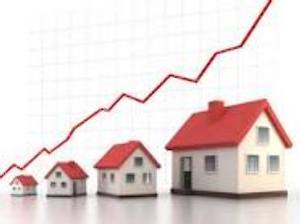
The latest QV House Price Index data has the average national value up by 5.3% year-on-year and by 2.6% over the past quarter, which left it at $722,475 in February.
For the third month in a row, all 16 of the major cities they monitor saw quarterly value growth, which indicates strength across the country.
And Auckland’s market is firmly on the rise again. The region’s average value was up by 1.2% year-on-year and by 1.8% over the past quarter to $1,057,556 in February.
QV general manager David Nagel says the data confirms that life is returning to the Auckland market after a relatively quiet two to three years.
“Sales activity has picked up significantly in Auckland as well as around most parts of the country as more buyers are committing to property decisions in an already congested market.
“As a consequence we’re seeing more buyers from across the property spectrum competing for limited stock which is forcing prices to rise.”
This pattern is likely to continue going into autumn as, typically, the summer rush of property listings drops off and an already tight market gets even more tightly held, he says. “This will only deepen the imbalance between demand and supply.”
In the meantime, of the main centres, it was Wellington and Dunedin which were the best performers in February.
Wellington turned in the highest quarterly value growth of 5.4%, followed closely by Dunedin with quarterly growth of 4.9%.
But Dunedin took the lead in the annual growth stakes with its values up by 18.1% year-on-year, with the Wellington region seeing year-on-year value growth of 10.8%.
This left Dunedin’s average value at $530,264 and the Wellington region’s average value at $774,957.
Both the Christchurch and Hamilton markets are also seeing a resurgence, with improved quarterly and annual value growth.
Of the smaller cities, Whanganui and Gisborne were the top North Island performers recording annual value growth of 29.1% and 24.9% to hit average values of $350,379 and $416,854 respectively.
Invercargill leads the way in the South Island with annual growth of 19.3%, which leaves it with an average value of $343,255.
As for the regions, the central North Island locations of Rangitieki, Tararua and Kawarau experienced annual value growth ranging between 22-32%, while Clutha District recorded the strongest annual value growth in the South Island at 17.2%.
Nagel says apprehension around COVID 19 and the impact it might have on the economy are unlikely to be felt in the property market in the short term.
But it could have an impact in the months ahead and, if so, locations dependent on tourism are likely to be first to feel the pinch, he says.
"If we see a reduction in the OCR by the Reserve Bank in response to the COVID 19 outbreak, then this could actually stimulate the property market further in the short term, depending on the extent of interest rate reductions that are passed onto borrowers."


